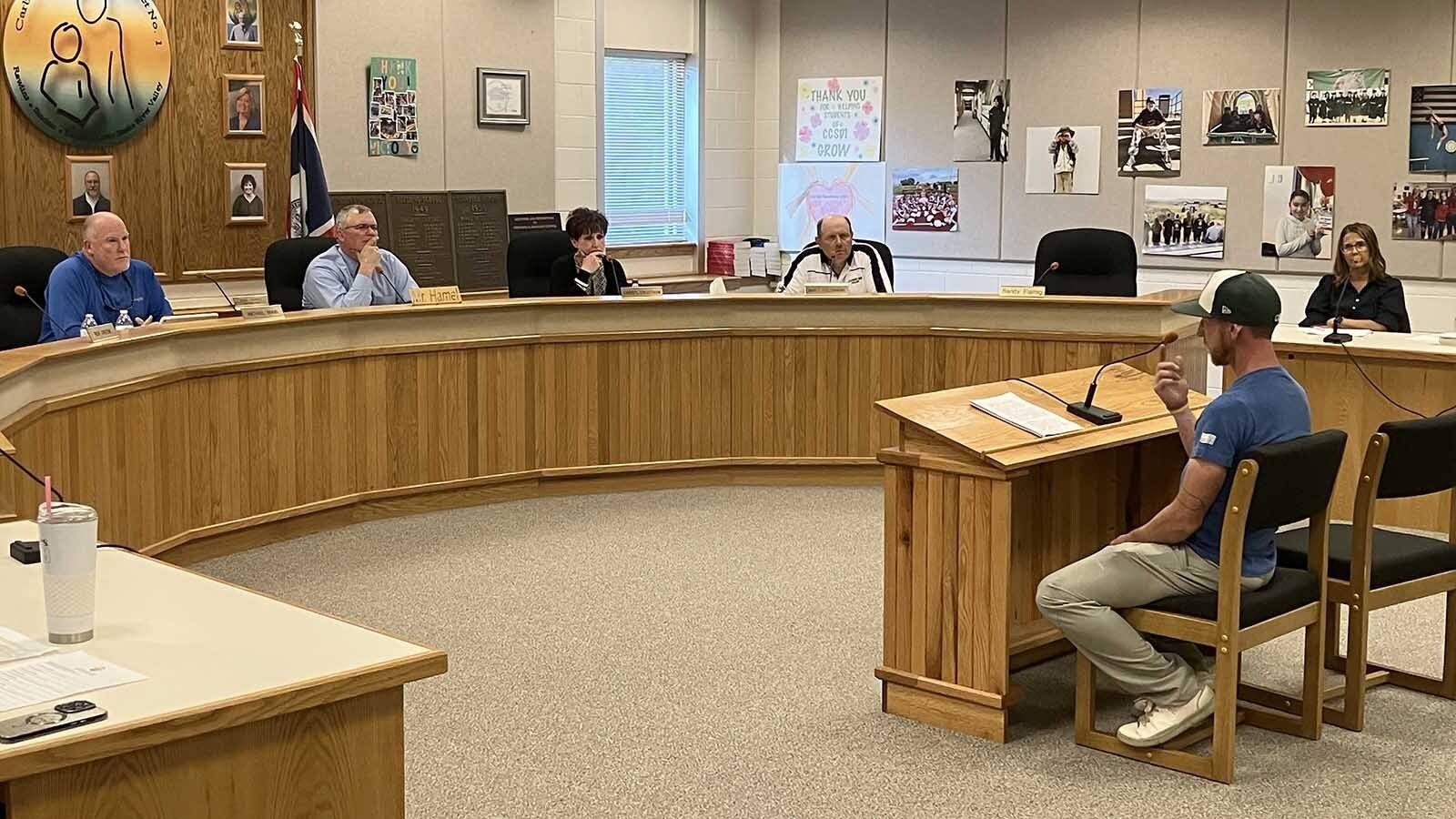By Jennifer Kocher, County 17
Anthony Monteleone learned the hard way what happens when you throw in a period at the end of a text.
The Campbell County High School senior had been having a good day, he said, and wanted to randomly share the thought with his buddies. Without thinking about it, he added a period at the end and hit send.
Immediately, his pals wanted to know what was wrong.
“Everyone thought I was being sarcastic or something,” he said with a laugh. “I really just wanted to say that I was having a good day.”
To many people above the age of 30, the period is a seemingly innocuous punctuation symbol used to mark the end of the sentence.
To Gen Z’ers and millennials, however, it’s considered a form of aggression when used in a text, or worse, a sign that a person is taking themselves far too seriously.
Text messages, Monteleone explained, are meant to be loose thoughts or casual conversations between friends. Adding a period, therefore, makes it “a serious conversation,” which, breaks with text etiquette and apparently puts some teens on edge because like all caps, or capital letters, it feels like they’re being yelled at.
“Most people reserve a period for when they want to make a serious point,” he said.
Some people are much more offended by text punctuation than others, explained CCHS junior Danielle Beightol, who said she doesn’t put a lot of thought into the underlying emotions that text punctuation may or may not convey.
“It depends on the person or group of people,” she further clarified. In her case, it’s not really a big deal, she said, because she doesn’t put a lot of credence into over-analyzing the purpose and tone of her texts. For her, it’s just a loose mode of conversation and a way to communicate otherwise mundane info between pals.
“Others read too deeply into it,” she said.
Monteleone said he thinks that teens overanalyze texts because they lack the verbal cues and human-to-human contact, so some people are overly cautious in the absence of context.
“You learn to compensate in a different format,” he said. “You scramble for the tiniest details to convey tone.”
Both teens clarified that this no-period etiquette is reserved for their peers, and both use punctuation freely when communicating with adults, teachers, or bosses, which they see as a form of professionalism that transcends whether or not a person is cool.
Likewise, this non-punctuation stance is reserved for text messages, both further clarified, and doesn’t apply to schoolwork or even posting on social media.
It also doesn’t correlate to reading books, Monteleone noted.
“It’s not like we read a book and feel like we’re being yelled at,” he said with a laugh. “We understand the difference.”
Ellipses, or the dot-dot-dot (…) as it’s informally known, is a much more casual, drawn-out cousin of the period used to indicate the intentional omission of a word or information to follow. For this reason, it’s much “softer” and denotes a “pause in thought” as opposed to an abrupt hard stop, Beightol and Monteleone both explained.
Likewise, exclamation marks, are dully acceptable despite their otherwise excitable and dramatic role in a sentence. But unlike the period, teens don’t put much emotional stock in the punctuation mark.
“We don’t take them seriously,” Beightol said. “They’re just kinda funny or sarcastic.”
Meanwhile, CCHS English teacher Tim Bessett was surprised to learn about the no-period rule, which until yesterday, he was blithely unaware.
“I had absolutely no idea,” Bessett said, noting he’s one of those uncool adults who texts in complete sentences with punctuation. His students nodded. They get it. When communicating with him, they always make a point to properly punctuate.
After talking to his students, Bessett learned that the length of a text message or whether it contains a period seems to have the biggest impact, at times, more so than even the body of the text. For example, he cited one student who told him that she was really put off by her mother who responded to her text question with “OK.” The capitals, on top of a period, put the teen into a headspin.
“She thought her mother was being aggressive or snooty about the request,” Bessett explained.
The looseness of grammar in texts and social media posts appears to not only be relegated to casual communication, however. As an English teacher, who also teaches theater, senior speech and speech and debate and has been at CCHS for 16 years, Bessett said the lack of attention to punctuation is becoming an ongoing battle that every year seems to get a little worse.
“I will have a number of students who can’t use punctuation,” he said. “There’s definitely a breakdown.”
Particularly, he sees students struggling with punctuation, capitalization, fragments, and run-on sentences, skills his students spend a lot of time rebuilding when they first enter his class.
Several studies seem to confirm Bessett’s belief that the way young people – and even adults – correspond on social media tends to work against grammatical skills and proper sentence structure as texting becomes almost like a second language.
The quick back and forth “culture of mobile communication” inevitably has compromised traditional, cultural writing, according to S. Shyam Sundar, professor of communications and co-director of Pennsylvania State University’s Media Effects Research Laboratory, which conducted the 2012 “Techspeak” study of 13- to 17 year olds.
Sundar and his researchers found that prevalent texting has eroded the foundation of basic grammar, suggesting that the teens can’t “code switch” between standard grammar and the abbreviations used in texts. Moreover, researchers found that tweens between 10 to 14 who are text savvy tended to score worse on grammar tests.
Regardless, as an English teacher, Bessett spends a lot of time helping students rebuild the skills, so they’ll, in essence, be fluent in two languages that serve two entirely different purposes.
For their part, Monteleone and Beightol say that both skills are useful, and they find it easy to switch back and forth between the two forms of communication.
It’s just another way to convey information, they shrug. No period necessary.





